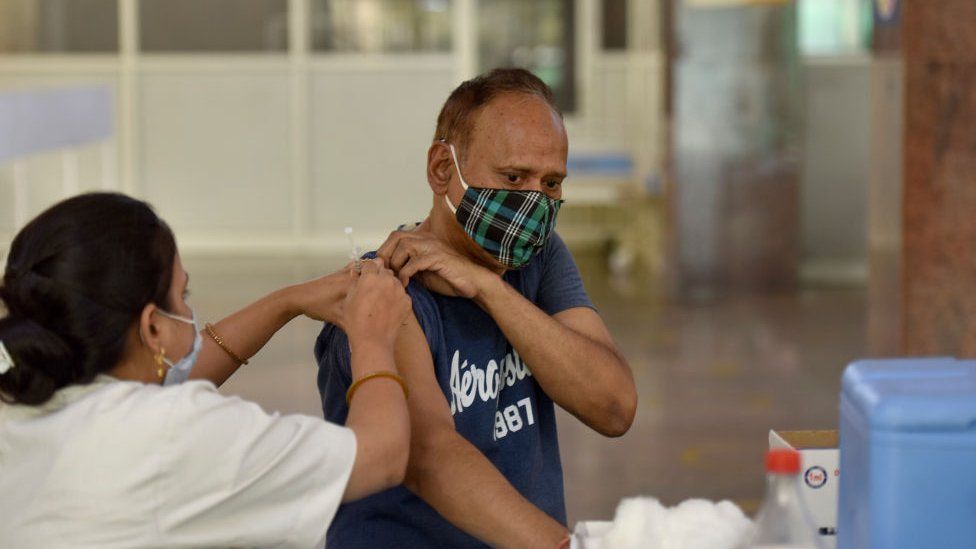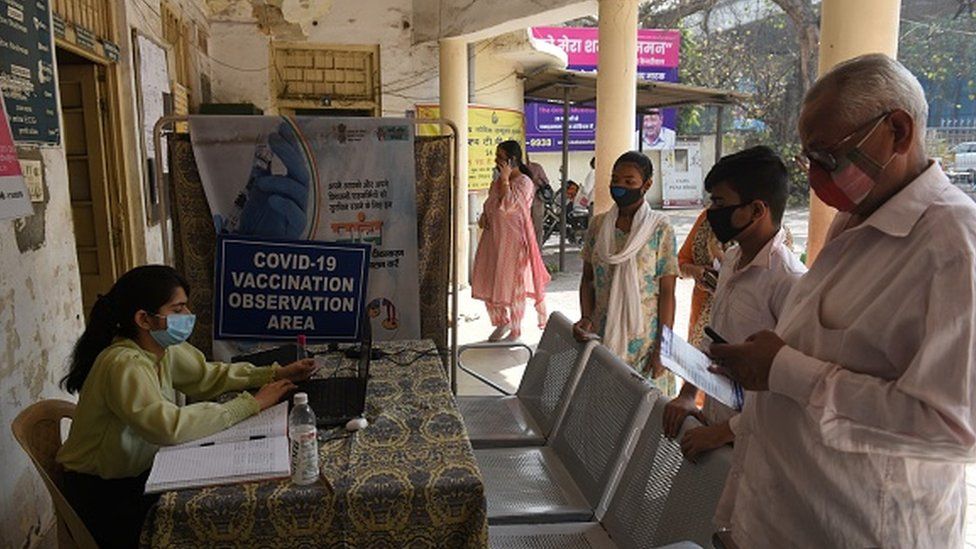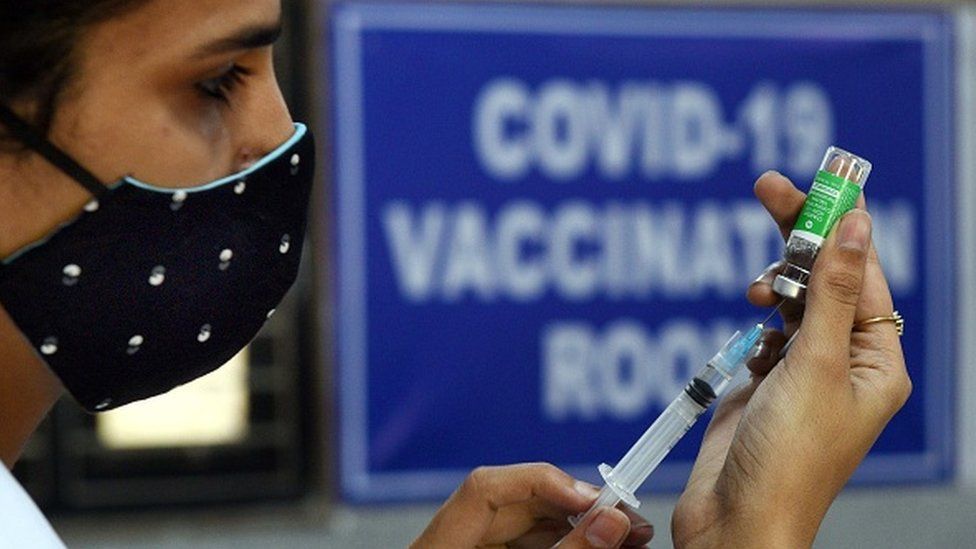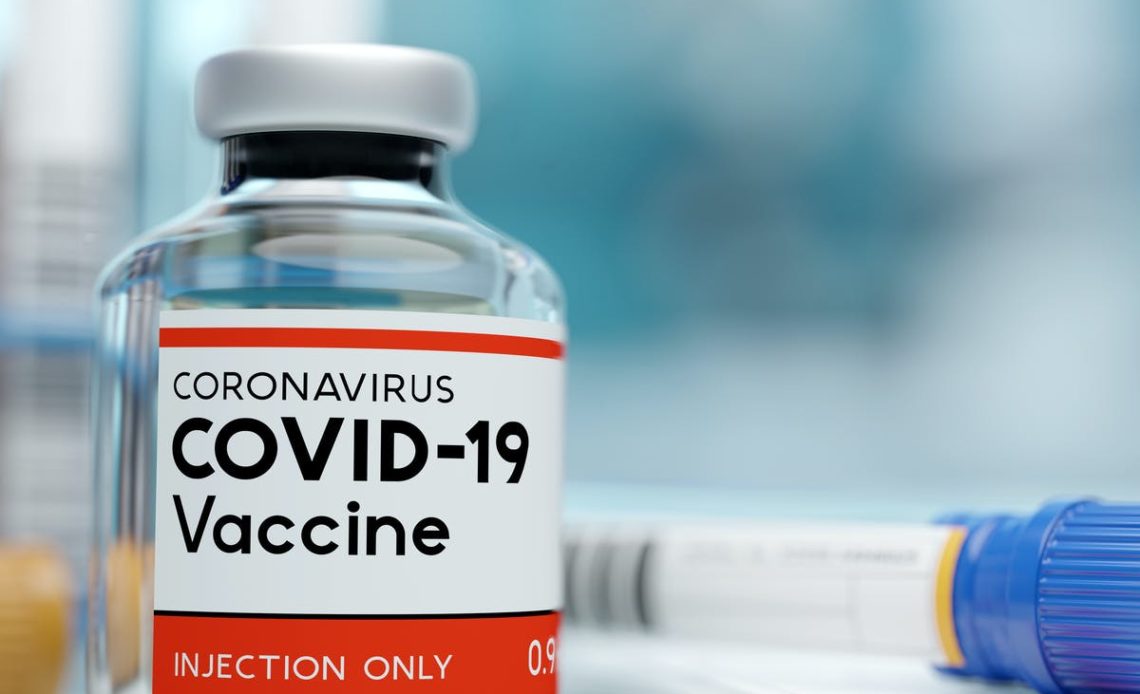India has administered more than two billion Covid vaccination doses, becoming the second country to hit the milestone after China.
“This has strengthened the global fight against Covid-19,” Prime Minister Narendra Modi tweeted on Sunday.
India’s achievement comes amid a rise in Covid cases in many states.
The government has asked states to step up surveillance of infections. It has also been trying to expand the booster dose programme across the country
Last week, India began a drive to give free booster doses – or precaution doses, as the government calls it – to all adults for 75 days. The time period is to mark the 75th anniversary of the country’s independence on 15 August.
Until now, only frontline workers, health workers and people above 60 years were eligible for free booster doses. Others had to pay for it.https://buy.tinypass.com/checkout/template/cacheableShow?
The move came days after the country cut the gap between the second and third doses of the vaccine to six months from nine.
The Hindustan Times newspaper reported last week that 92% of Indians who were eligible for a booster dose haven’t taken it yet.

Over 55 million booster doses have been administered so far since the programme began in January. The drive was initially open to healthcare and frontline workers, and those above 60 years with comorbidities. It was later expanded to all adults.
A vaccine programme for 15- to 18-year-olds began in January, and for 12- to -14-year-olds in March.
According to India’s health ministry, 98% of adults have received at least one dose of the Covid vaccine, while 90% have been fully vaccinated.
China has administered around 3.4 billion doses of the vaccine so far, according to the Johns Hopkins Coronavirus Resource Center.
So far, India has reported around 43.5 million Covid cases, second only to the US, and around 525,242 deaths – behind the US and Brazil.
On Monday, the country reported 20,528 daily cases for the past 24 hours, a four-month high.
States such as Maharashtra, Kerala, Tamil Nadu and West Bengal have seen a jump in daily active cases over the past few weeks.
The rollout
India had a slow start when vaccinations were opened for some 960 million eligible adults in January 2021.
Logistical problems, supply bottlenecks, vaccine hesitancy and a debilitating second wave of Covid-19 during this period made the rollout harder.

But as the situation eased, it managed to ramp up coverage, with tens of thousands of public and private health facilities offering the jab.
The country delivered vaccines by drone to far-flung villages in north-east India’s mountainous regions.
Drones were also used to ferry doses to the eastern archipelago of Andamans and Nicobar where “transportation by boat” was taking a long time.
Though the programme missed its first, over-ambitious deadline of universal adult vaccination by 31 December 2021, it has hit some milestones like the recent one.
On 17 September, India administered more than 20 million doses in a day in a record-breaking effort to mark Prime Minister Narendra Modi’s 71st birthday.
In October, it crossed the one billion mark, becoming the second country after China to do so.
Which vaccines is India using?
India is currently using four vaccines – the Oxford-AstraZeneca jab, known locally as Covishield; Covaxin by Indian firm Bharat Biotech; Russian-made Sputnik V and Corbevax.
Covishield has accounted for around 80% of the doses given to adults so far.
Corbevax, which is a protein-based vaccine manufactured by Biological E, got emergency use authorisation from India’s drug regulator in February 2022 for the age group of 12-18 years.
In June, Covovax – made by the Serum Institute Of India – received approval for restricted emergency use in children aged between seven and 12 years.

The government had also authorised Indian pharma company Cipla to import Moderna’s vaccine, which has shown nearly 95% efficacy against Covid-19. But doses of these are yet to be made available to India.
In February, it also approved a new single-dose vaccine, Sputnik Light, a component of Sputnik V.
Have there been ‘adverse events’ after vaccination?
People can experience side effects from vaccines.
India has a three-decade-old surveillance programme for monitoring “adverse events” following immunisation. Experts say a failure to transparently report such incidents could lead to fear-mongering around vaccines.
The government told the Supreme Court that the country reported more than 772,000 “adverse events” after vaccination as of 13 March 2022. This included “minor, serious and severe events”.
The serious cases were “minuscule in number; where vaccines may or may not be the cause of death”.
The government has previously said adverse effects may not necessarily be caused by the vaccines, adding that “the risk of dying following vaccination is negligible compared to the known risk of dying due to Covid-19 disease”. – bbc.com

